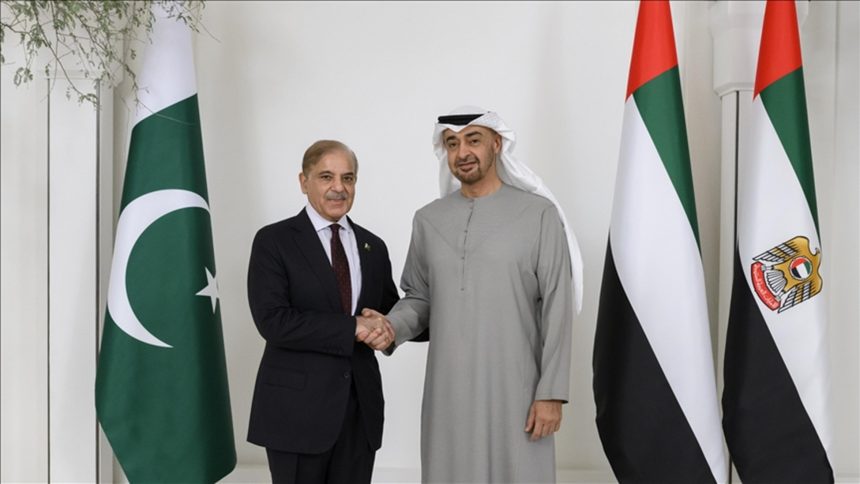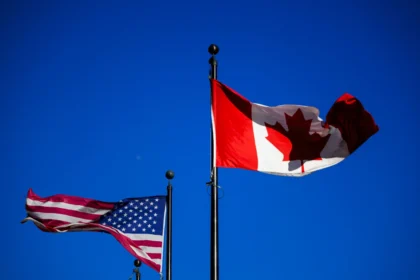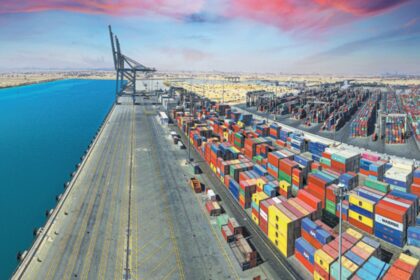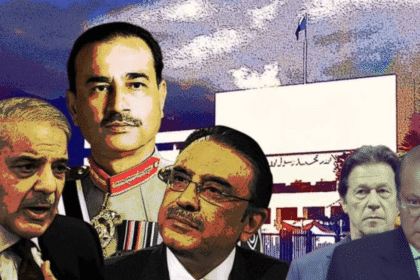“Contradictory and ambiguous views on this serious matter will have a heavy price to pay.”
These shocking remarks were delivered by the then-foreign minister of the United Arab Emirates, Anwar Mohammed Gargash, expressing outrage at Pakistan’s decision not to join the Arab coalition’s intervention in Yemen in 2015. Officials in Pakistan were indignant and justifiably criticised these comments as blatantly breaking diplomatic norms between friendly nations, and the statements were quickly referred to as “personal opinions” by the UAE Foreign Ministry.
Yet, these scathing personal opinions reveal the truth of an often-quoted adage:
”No such thing as a free lunch.”
This free lunch was our role in the Middle East and relations with the Gulf countries. Pakistan almost took its ties with the oil states for granted, yet this relationship was based on a critical expectation from the Gulf sheikhs and our foundational role in the region; Islamabad was to be the security patron and fill areas where their own defence capabilities lacked, destined to protect the sovereignty of these states from policies that threatened them.
Yet, given Pakistan’s own national interest in keeping a delicate balance of ties between Iran and the Gulf countries, one can understand why we didn’t intervene. Surely, we might ask ourselves, decades of ties won’t collapse over one issue, right? Yet Yemen is but a symptom of a wider malaise damaging our influence: the shifting sands of geopolitics and our increasing inability to manage these dynamics.
Pakistan’s influence in the Middle East beyond cultural and religious ties is predicated on two things: human capital and military assistance. The latter has shaped Pakistan’s core engagement with the Arab world since the late 60s. The Arab nations, particularly the Gulf States, flush with black gold and intent on building up their military, turned to Pakistan for advisors, who trained and assisted the armies of Syria, Egypt, Jordan, etc. At the same time, the Gulf kingdoms went a step further and requested Pakistani air servicemen and army personnel to directly serve in their security forces, thereby, in part, entrusting Pakistanis with their physical protection and territorial integrity. The high watermark of this relationship was realised in the 1980s when Pakistan agreed to station troops in the Kingdom of Saudi Arabia, reaching 20,000 troops in 1983, and later sent a brigade to protect the kingdom during the first Gulf War.
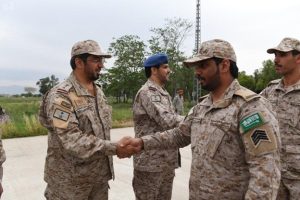
In return, the Arab sheikhdoms lavished Pakistan with investment, aid, oil deferments, loans, and diplomatic and political support, with Saudi Arabia supporting Pakistan with free oil shipments in the aftermath of the nuclear tests besides agreeing to back Pakistan on the Kashmir issue throughout the 90s. Pakistan, furthermore, was able to keep these relationships without being sucked in as a belligerent into the covert and overt cold war between Iran and the Gulf states led by Saudi.
All good things must come to an end and thus, Pakistan would see its position as a neutral arbiter in Eastern affairs, enjoying cordial ties with the main Arab states, become increasingly complicated; the strategic and political stakes in the region devolving into a zero-sum game, with each party unwilling to fully compromise- the prognosis of this being heralded by the American invasion of Iraq. The fall of Saddam Hussein upset the delicate power balance of the region and threw it into chaos.
Suddenly, after decades, Iran was able to fund and organise groups in Iraq, slowly increasing its influence in the country and creating a nightmare scenario for the Gulf kingdoms: The Shia crescent, weakened only now due to events in Syria and Lebanon. It used to arc around the Arabian Peninsula and box the Gulf states, confronting them with a major security threat. This perceived threat by Iran was compounded further by American manoeuvres in the region, which climaxed in the Iran nuclear deal—a move vociferously opposed by the Arabs—creating an acute geopolitical threat that has influenced Saudi, Emirati, and other Gulf states ever since.
The Gulf States, to put it bluntly, have incompetent and intentionally crippled militaries and thus inevitably flatter against the Iranian armed forces; Western powers, as a result, are used by the Gulf States as a counterweight, with the countries in return providing them with military bases. As long as the Americans had a hyper interest in the Middle East, the Gulf States felt secure, yet this changed under the Obama administration when the US decided on a policy to pivot towards the Pacific to confront China.
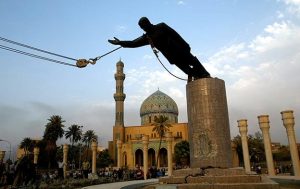
In pursuit of this, America ended active combat operations in Iraq in 2011 and, most crucially, entered into discussions with Iran, paving the way to the nuclear deal in 2015. This was disastrous for them as Iran gained full control in Iraq and, in addition, got sanction relief, enabling them to accelerate their proxy and ballistic missile programs. Suddenly, the Gulf Arabs realised that Western powers couldn’t be relied upon and that more security patrons were necessary, those with more stakes in the region, and this resulted in an unholy alliance with the Israelis; normalisation only halted because of the Gaza war in 2023.
This maddening geopolitical mosaic is muddled further by the entry of Turkey into the region as a third power. Ever since the Arab revolutions of 2011, Turkey, under President Erdogan, has keenly sought to expand its influence by supporting semi-democratic forces in various countries. In doing so, it has deployed troops in Libya and Iraq and has successfully overthrown the Assad regime. This growth of Turkish influence has inevitably worried the Arab kingdoms because they fear the forces Turkey supports will disrupt their governance model. Turkey, furthermore, has grown to be a robust ally of Pakistan, giving diplomatic support and cooperating in military development.
Increasingly, there had been growing pressure on Pakistan to commit to one side. The Arab normalisation of Israel, starting with the Abraham records, has resulted in intense lobbying to force Pakistan to abandon more than 70 years of principled foreign policy and recognise Israel, something which only eased as a result of the Gaza war. At the same time, the cancelled Kuala Lumpur summit in 2020 shows that the Gulf states are loath to see Pakistan develop too close ties with Iran and Turkey.
The equilibrium maintained since the 1970s is thus collapsing, and our neutrality principle is interpreted as hesitancy in defending Gulf interests. As a result, they are not only exploring the Israeli option but even adopting more conciliatory gestures with India, examples of this being the announcement of investing billions of dollars into the Indian markets and military visits and exercises.
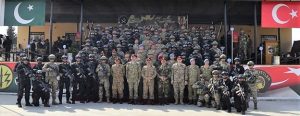
Fortune favours the bold and clinging to decaying paradigms that will neither reverse the decline nor advance Pakistan’s interest. We find ourselves increasingly unable to handle the changing dynamics in the Middle East, but that isn’t set in stone. Thinking and rethinking our goals in the region is necessary and required.
The sands shift as the winds change, yet it is not inevitable that one will be swept away along with them.






